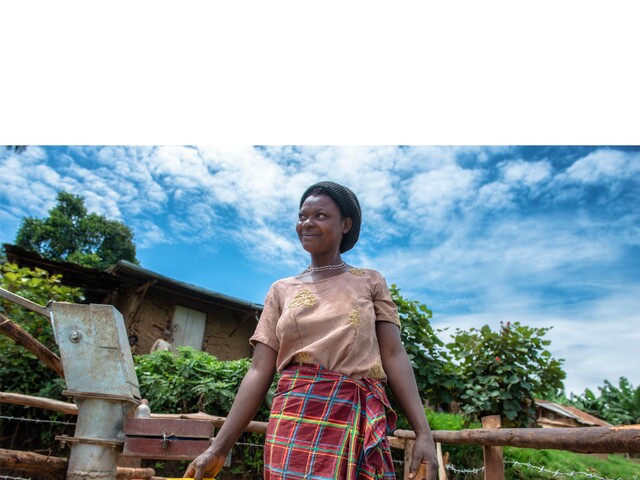
Explore our pages
Narrow down your search by using the filters. Dive deeper using advanced search.
Please find below your results. You can filter results or use our Resources: Advanced Search facility.
To integrate or not to integrate basic WASH services - that is the question Read more...
Or, why getting basic water to everyone is entirely possible. Read more...
A new framing for Public Private Partnerships (PPPs) in water, sanitation and hygiene (WASH), integrated water resources management (IWRM), and improving water efficiency in agriculture. Read more...
Lessons from Tanzania show that payment by results can help stakeholders achieve improved water point functionality. Read more...
Recently I listened to a speech by Arnold Schwarzenegger on how the climate movement is stuck and needs to reset. I think our approach to solving the water and sanitation crisis could help. Read more...
A review of the Tanzanian water sector budget for 2021/22. Read more...
On International Women's Day , research from Water.org shows how empowerment flows from financing improved water and sanitation access. Read more...
The Conrad N. Hilton Foundation supports collective action in many countries. Ghana is proudly one of them. Read more...
Systematic or systemic inequalities are grounded in our mindsets; in the way, we think, in the way we plan, in the way we see people, and in the way we interpret the rights to water and sanitation. Read more...
The South Ari Woreda learning alliance pushed for the establishment of the Gazer Town Water Supply Service Office as a utility to improve water services in the area. Read more...
The same capacities that help us adapt to COVID-19 can be used to face climate change. Read more...
An NGO and local governments grapple with the long-term implications of meeting emergency water supply needs during COVID-19. Read more...
Pure water has become a powerful selling point for communities in the Wassa East district of Ghana, proving that people will indeed pay for water if they can be sure it is safe. Read more...
Bongo district is increasing its reliance on small town water systems to provide safe water in areas where the population is more concentrated. Deep boreholes provide water to storage tanks and standpipes across the area – with the potential also to make household connections. Read more...
Asaloko is a small community in the Bongo district where lives have been transformed through the introduction of safe water and effective sanitation. Householders no longer carry water long distances, children are better able to learn and the whole environment has been cleaned up. Read more...
Automated water points appear in Asutifi North District. Read more...
Asutifi North District is doing a pilot study on conducting smart tests. Read more...
Material prepared by a team from the Ghana National Development Planning Commission and IRC Ghana In March 2018 Janet Wilson was fetching water from the old well in Agravi village when a camera crew arrived and started filming. In the video posted online , she can be seen – a woman in her early 60s... Read more...
When Wassa East District Assembly audited 202 water points in 2015 as part of the SMARter WASH project they found that 50% were not functional. They developed a four-year Sustainable WASH Plan to ensure sustainable access to safe water for all communities in the district. Read more...
Providing water and sanitation services to people who live in rural areas or informal settlements or simply aren’t connected to pipes is a complex business. Needlessly so. Social distancing? Queuing for water in Sahel Region of Burkina Faso. Photo: IRC Burkina Faso Read more...